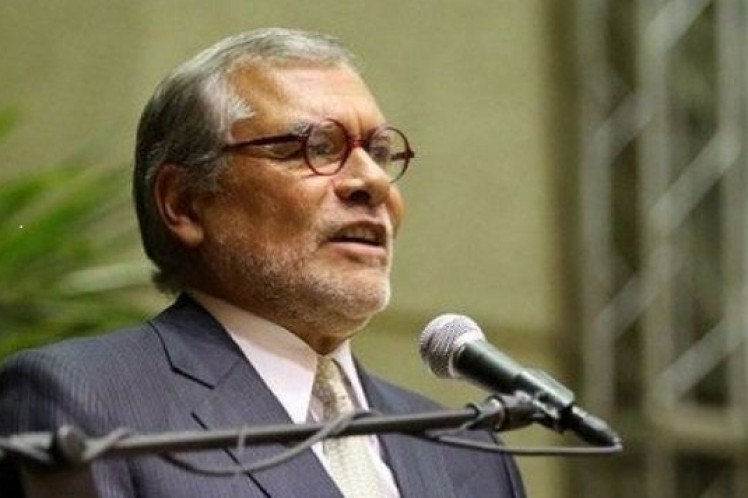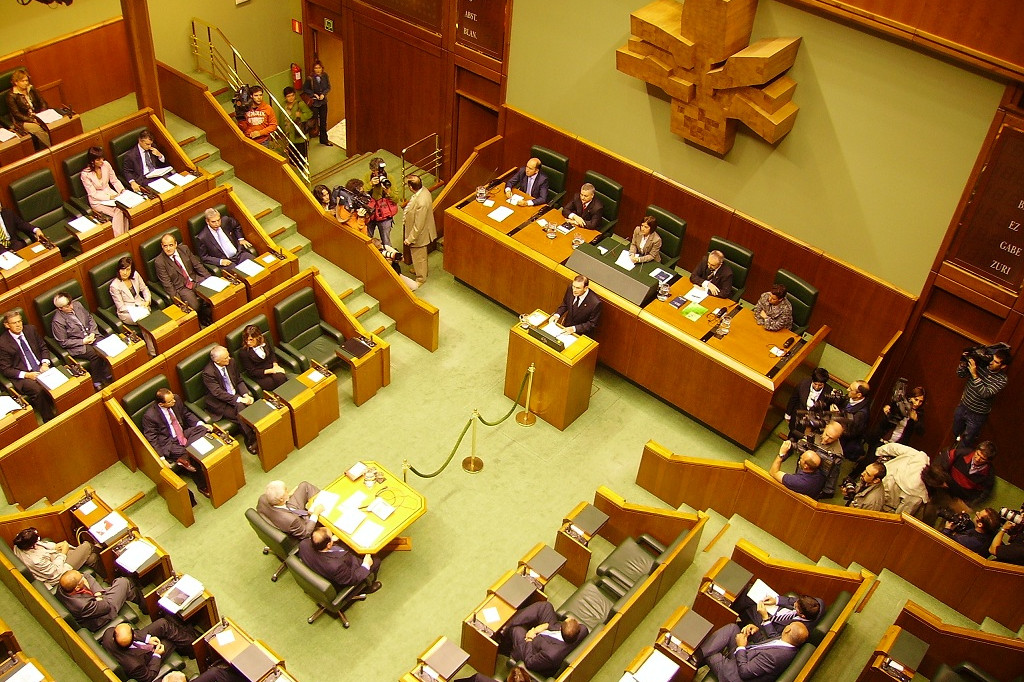The expansion of the social State and the integration into the European Union, which meant the arrival of development funds, led to a greater intervention of the Administrations in the economy, to provide the services and benefits required to fulfil social, cultural and economic rights and for the implementation of the infrastructures that advanced the modernization of the country in the 80s.
Public contracts and competitive bidding established a privileged space of compromise between political and economic powers, generating a collusion between political interests and individuals. The decentralization of the State, which makes possible the concurrence of multiple administrative organisations, spread and amplified the promiscuity between the economic agents and the leaders of the political parties.
In recent years we have seen a deep malaise ib Spanish society about the continuing cases of corruption.
In opinion polls conducted regularly by the Centre for Sociological Research, when identifying the three main problems that currently exist in Spain, the general public repeatedly and invariably point out in recent years, first the unemployment and secondly the corruption and fraud, above economic problems. It is true that the economic crisis has increased the level of social demand, and although the Judiciary has been fulfilling its role with some efficiency, despite its slowness, in recent years has generated quite a high level of social alarm.
During this time, judges and criminal courts have been involved in the investigation and prosecution of corruption offenses that has given them greater presence and visibility in the public space. The causes and the investigated are in the hundreds; some public figures are currently serving prison sentences.
Slowly, and to the surprise of many, the criminal jurisdiction is bringing justice to political leaders and those responsible for economic power.
Reality prevails. Specialized apparatuses, such as police investigative units, anti-corruption prosecutors and investigating magistrates, operate in a sea of great difficulties, but they have not been neutralized by those determined to maintain the immunities of public and private powers.
LACK OF POLITICAL WILL
This new reality has given rise to problems and objections in the judicial system: the inadequacy of the means of investigation, prosecution and prosecution, the absence of judicial police and experts in accounting and finance, the complexity of economic crimes, the impeding capacity of the criminal defences of high positions, the obsolescence of the procedural regulations, the lack of technical training of civil servants and structures accustomed to deal with simple crimes of the weak and subordinate, the macro-processes and, above all, the lack of political will to confront corruption, hold violators accountable and deploy the intended preventive penalties.
Judicial independence expresses itself, like any form of power, as a relationship between who holds the reins and those who owe them obedience; hence, it becomes a privileged place in the political struggle when the courts question the immunities of power and intend to break the impunity of the illicit acts of those who hold power. Currently, independence is discussed mainly in the field of education and the prosecution of corruption offenses. Because, inevitably, the confrontation of the courts with the other public powers and with the economic powers increases: the attack against the independence is done directly, abruptly and without subterfuge.
The levels reached by the investigation of corruption offenses are aggravating the party politics crisis and the system of representation, which makes the attempt to politicize criminal proceedings foreseeable.
In this context, most of the judicial associations and prosecutors, sharing the citizen's concern, in 2014 issued an unprecedented communiqué appealing for the strengthening of the Judiciary as the only guarantor to correct the deviations of power. However, the responsibility for the necessary democratic regeneration cannot fall exclusively on the criminal justice system. Criminal law is a necessary and unavoidable tool for the fight against corruption, although measures are needed in other areas, as well as the involvement of the entire public powers of the State.
Therefore, to combat this scourge of corruption, we need to adopt the following measures:
First and foremost, a new regulation on the financing of political parties, focusing on the supervision of loans, the consolidation of the accounts of the parties (including regional and local branches and other entities linked to political parties), the improvement of internal financial controls, exhaustive checks carried out in due course by the Ombudsman, a reinforced sanctions regime. and the revision of the Penal Code to sanction the illegal financing of political parties as an offense.
INCREASE THE BUDGET ALLOCATED TO JUSTICE
Secondly, the "Fourth assessment report of the Council of Europe on the prevention of corruption with respect to members of parliament, judges and prosecutors" (Report of the Group of States against corruption (GRECO), with criticism of the system Spanish election of the members of the General Council of the Judicial Power, in addition to recognising the importance that political power does not interfere in the judicial one. The colonization by political parties of institutions and, particularly, those linked to the Judiciary and the Constitutional Court, turning it into a mere sounding board of partisan confrontation, has significant consequences in this body. Also, the aforementioned Group indicates the anti-corruption measures that our country has not yet adopted, among which those related to the field of Justice stand out, that analyze the legislative framework of the General Council of the Judiciary, which will legislate objective criteria and evaluation rules for the appointments of the high judiciary positions and make the lapse period of the disciplinary procedures of the judges longer.
An immediate increase in the budget allocated to Justice is equally urgent, bringing the number of Judges and Prosecutors in Spain up to the European average.
Consider that Spain is the leader as regards budget cuts, along with Ireland and Portugal, which adversely affect the resources dedicated to the judicial system, according to the aforementioned report of the European Commission for the Efficiency of Justice (CEPEJ) of the Council of Europe. According to the report published by this same body, carried out in 47 countries every two years and evaluates the European judicial systems, it shows that in 2016 there were 12.2 judges per 100,000 inhabitants in Spain when the European average is 21.
ESTABLISHMENT OF A NEW PROCEDURAL MODEL
The provision of adequate material resources to public civil servants with powers in the fight against corruption would be the fourth proposal. In particular, the strengthening the assistance of judicial and prosecutorial bodies that investigate cases of this type (units of the Judicial Police, assisting the Tax Agency and the Treasury).
Fifth, the establishment of a new criminal procedure model, appropriate and effective to combat 21st century forms of crime, and particularly, the complex cases of organized crime and corruption. Let's not forget that our nineteenth Law of Criminal Procedure is the only pre-constitutional procedural law in the four jurisdictional orders.
It is essential, in sixth place, to improve the effectiveness of the fight against tax fraud, with the consequent Tax Agency's increase of staff and material means of inspection.
Seventh, the number of aforados (privileged individuals with parliamentary immunity) in the political sphere has to be reduced, as well as the immunity from prosecution for crimes committed in the exercise of their position.
Finally, we recommend a reform of the Land Law and the laws that regulate public procurement to achieve greater transparency in its execution and strict control of privatisation processes.











